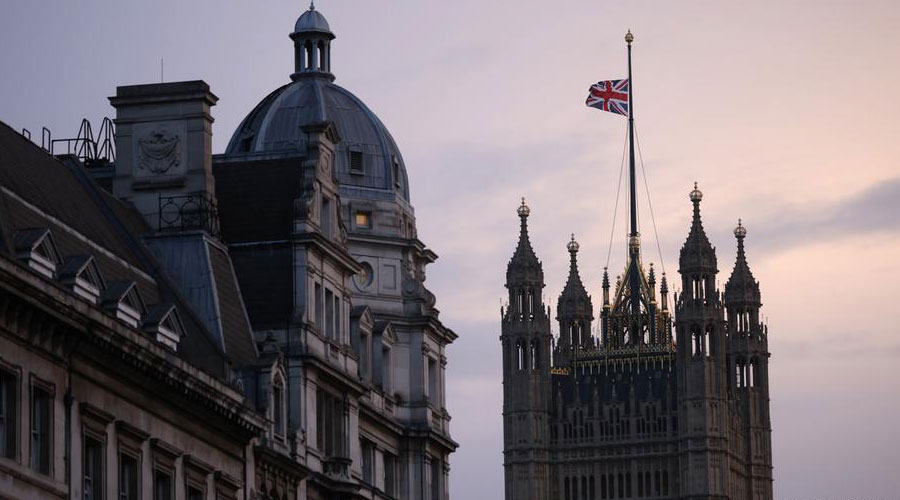Secret plans for the detailed course of events after the death of Queen Elizabeth II have been ready for a long time — codenamed Operation London Bridge.
The day has come, setting into motion a minutely devised protocol.
"London Bridge is down" — after the Queen passed away today at her Scottish estate, Balmoral, the Prime Minister was informed of the event by way of that code phrase on a secure telephone line.
Next, a long chain of communication ensued, with the cabinet secretary and senior ministers then notified — and requested to keep the information confidential.
Only then did the official announcement go to the press. Within 10 minutes, all flags on public buildings were lowered to half-mast and bells tolled.
Buckingham Palace and government social media channels carried black banners, and a mourning notice was posted on a black background.
10 days to state funeral
Meanwhile, the heir to the throne, her son and soon to become King Charles III, prepares for his address to the nation as the new head of state, followed by a memorial service at St. Paul's Cathedral in London.
For the next 10 days, until the Queen's funeral, all government business will rest. The "London Bridge" protocol, however, continues; each day following what is termed "D-Day" (the day of the Queen's death) is numbered.
D-Day+1, and a new King
Prince Charles will officially be proclaimed the new king. Charles' enthronement is codenamed Operation Spring Tide. The new king then has his first audience with the prime minister and the cabinet.
The following day, Elizabeth's coffin will be taken to Buckingham Palace, to be received by the prime minister and members of the Cabinet. Since the monarch died in Balmoral in Scotland, Operation UNICORN will be triggered which means her body will be taken to London by royal train.
If that's not possible, Operation OVERSTUDY kicks in — meaning the coffin will be transferred by plane.
On Day 3, the new king is scheduled to receive condolences at Westminster in the morning. In the afternoon, he sets out on his journey across the United Kingdom, which first takes him to Scotland.
D-Day+4 to D-Day+9, Operations Lion and Feather
While the new sovereign visits Northern Ireland, Operation Lion will be rehearsed in London. It is the procession of the royal coffin from Buckingham Palace to the Palace of Westminster, the seat of government.
After the coffin arrives at the Palace of Westminster Palace, there will be a church service. The Queen will lie in state for four days in Westminster Hall in an operation codenamed Feather. People will be able to pay their respects to the Queen around the clock.
Meanwhile, the proceedings of the state funeral will be rehearsed, and King Charles III will visit Wales.
D-Day+10, state funeral
The state funeral is to be held at Westminster Abbey. Nationwide, there will be two minutes of silence at noon. The day of the funeral is to be a "Day of National Mourning;" employers are free to give their employees the day off if it is a weekday.
The state funeral will be followed by a procession to St. George's Chapel at Windsor Castle, with a final farewell to the Queen during a service.
Queen Elizabeth will be laid to rest in the King George VI Memorial Chapel at Windsor Castle — side by side with her husband Prince Philip, who died in April 2021, and who will now be moved from the royal crypt to the family tomb.











